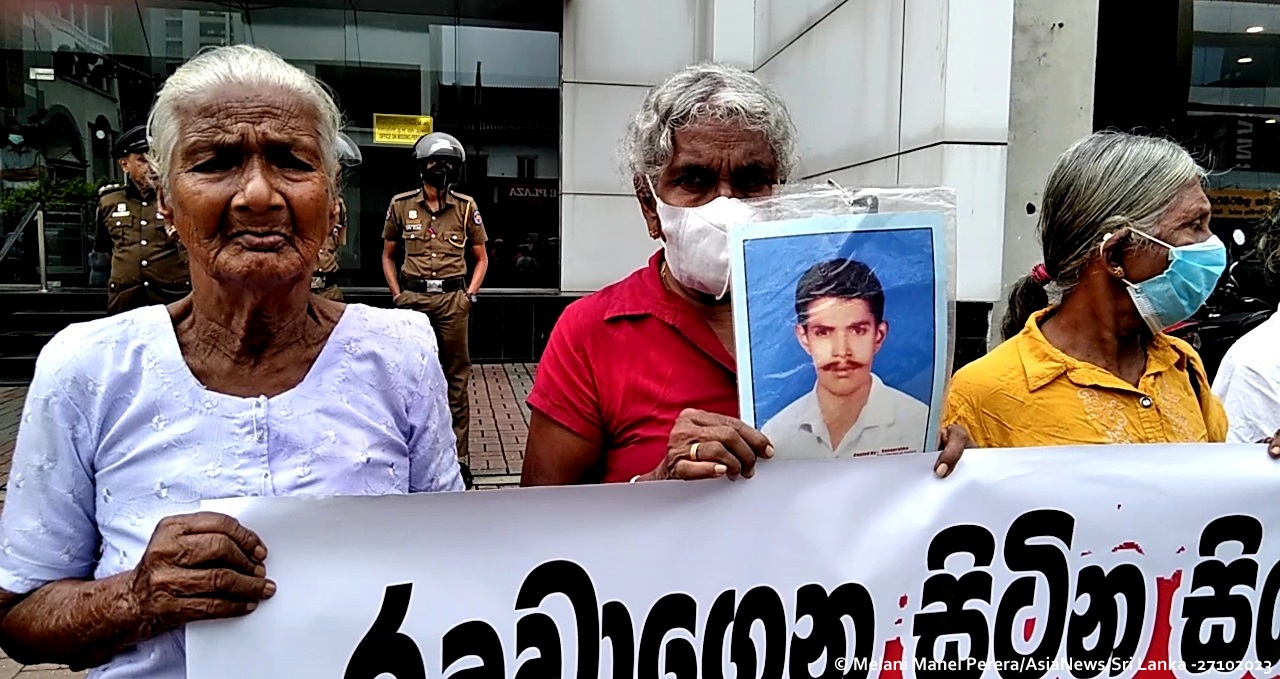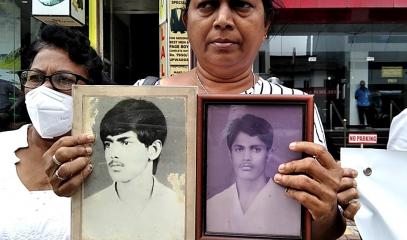Activists to Colombo: No reconciliation through laws obtained by majority
Appeal to the government launched by the National Peace Council, which asks to consult the opposition and civil society before approval. "The entire democratic process" is at risk. According to critics, "the support of the international community" seems to be a priority by producing laws rather than guaranteeing justice and representativeness for ethnic and religious minorities.
Colombo (AsiaNews) - The government law on the establishment of the Commission for Truth, Unity and Reconciliation (Ctur) being examined by Parliament must be discussed with the opposition and civil society, it cannot be achieved with a majority.
This is the appeal launched to the leaders of the executive by the National Peace Council (NPC), which asks not to rush the time to get to the vote but to pay attention to the indications and findings of the entire society.
In a note, the group, recognized in the country for its work to protect rights, returns to the controversial Online Safety Bill, hoping for greater attention to the opposition's findings and to wait before converting it into law with the signature of the President of Parliament, but to evaluate all amendments first.
“We welcome the announcement by the Speaker of the House Mahinda Yapa Abeywardena” of further investigations by the Attorney General into the amendments inserted during the legislative process to evaluate their “correctness” and “compliance” with the directives of the Supreme Court.
“The right to free expression - continues the NPC note - is a fundamental democratic right which, if violated, would put the democratic process at risk”.
The group continues by underlining that it wants to "address the bill on the Commission for Truth, Unity and Reconciliation (Ctur) published on January 1st of this year. We invite the government not to rush its approval" as well as that "on online safety or on the Office for National Unity and Reconciliation (Onur)" passed Parliament on 9 January "without taking into account the opinions of the opposition and the civil society".
For activists it is "worrying" that the bill on the commission was prepared and published "even before the presentation of the report of the Presidential Commission of Inquiry".
In the synopsis of the report of the Commission [led by Justice Ahmd] Nawaz and published in February last year, the commissioners referred to a commission whose contours and responsibilities would be defined in due course, and not before the final report.
However, the government's urgency to hastily pass the law, without even waiting for the Nawaz Commission to submit its report, and with minimal consultation of the opposition and civil society, suggests a motivation that goes beyond reconciliation.
“There appears to be a desire to gain the support of the international community by producing the TURC law, even though it may not have the support – explains the statement – of the harmed ethnic and religious minorities it is intended for.”
Like the Onur, the aim of the commission renamed Ctur is to strengthen the process of national reconciliation. Therefore, it must be based on the consensus of the government and the parties representing the opposition and ethnic and religious minorities, rather than being crushed by a majority vote in Parliament, critics note.
Hence the final invitation from NPC activists to the government to "discuss the bill" and obtain the "consent" of the opposition and civil society before proceeding to the vote in the Assembly.








.png)










